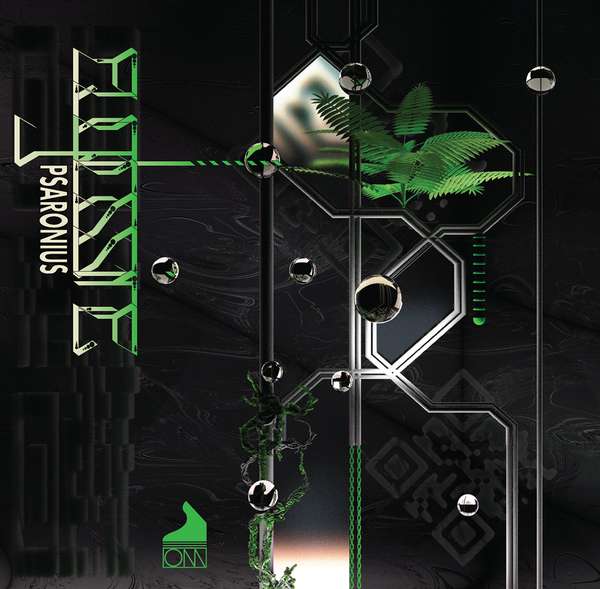Created using a combination of physical instruments and various synthesized elements, it wasn’t particularly surprising for me to learn that one of the major concepts behind Gainsville, Florida-based musician Euglossine’s Psaronius (a name which could refer to either a type of prehistoric tree fern or a kind of precious stone) was recreating familiar objects through the use sound. This album has a very warm quality to it in spite of various electronic elements, elements that in other contexts might make music seem somewhat distant, and as a more artistically-minded release, it’s consistently interesting to listen to.
Opener “Balloon 1995” invokes a carefree and dreamy atmosphere by delivering bright synth tones alongside breathy and echoing flute. Maybe it’s not a shock given its title, but the track for me recalls a sense of childlike wonder. Like many of the album’s tracks, this one delivers several motifs, if you will, and certain sections remind me of synth-driven Japanese pop music. Follow-up “Nightflowers at the Beach of Oblivion” is more dramatic, though the lurching, heavier bass synth lines are contrasted well by the secondary parts that seem to dance over them.
Though actually named for a standard 3D test modeling object, “Utah Teapot” conjures up an image in my mind of a submarine lumbering through the depths with its bubbling bass tones and array of playful electronic effects. The subsequent trio of tracks, including the album’s title piece, remind me of vintage Aphex Twin, alternating between rhythmic and more ambient sections. Clearly, though, Euglossine here is more focused on delivering genuinely pleasant electronic music without the anarchic and noisy excesses found in much of Richard D. James’ output. After the somewhat more spacey “Megaphyton,” the album finishes with the rather chilled out “Carneros AVA,” whose title refers to the location of the famous Windows 95 default background image.
At times, Psaronius treads into territory that I might describe as being a bit too new agey for my tastes, but it does nicely stimulate the imagination and would lift the listener out of the daily grind. I also rather liked the fact that, at just under a half hour in length, it doesn’t go on for too long and really overstay its welcome. There’s plenty here to capture a listener’s attention, yet I’d almost say Psaronius would be most ideal as background music while you’re working on the computer or doing stuff around the house. I don’t think I’d put this in the upper echelon of modern electronic music releases, but it’s a very agreeable sonic diversion for those that want more out of their electro than thumping beats and sick drops.




